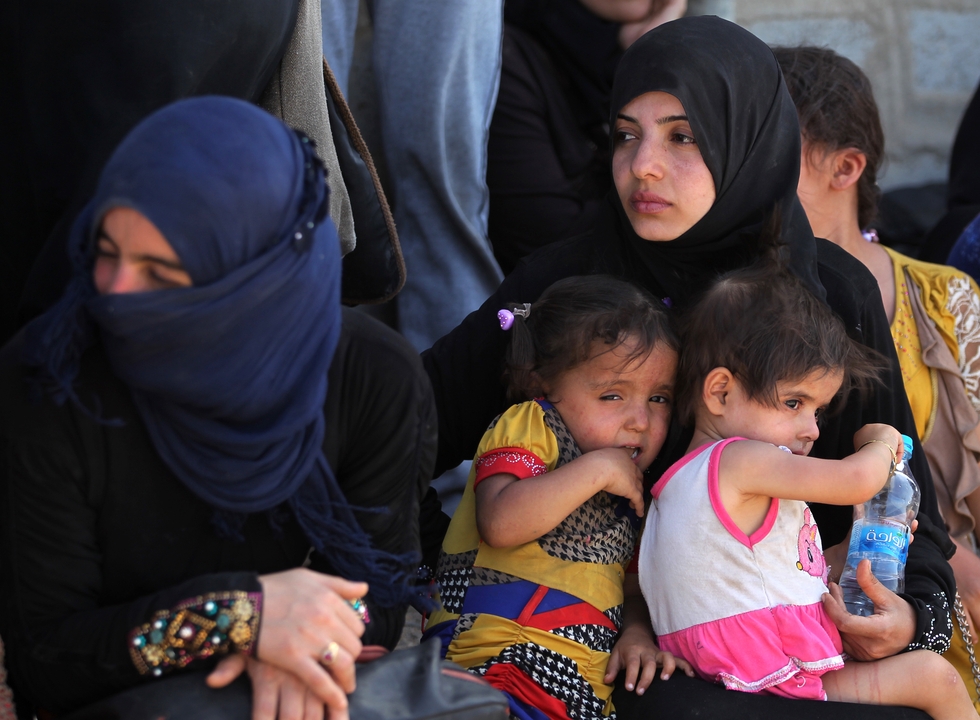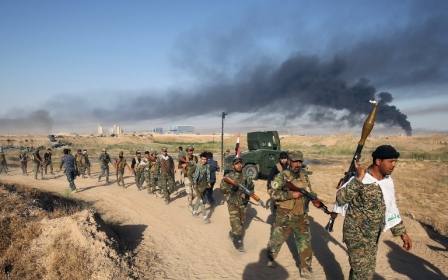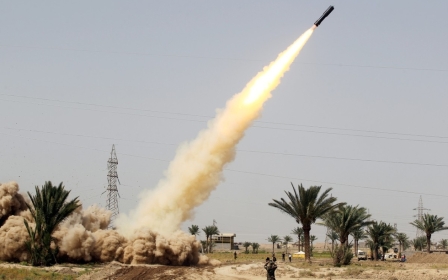Children drown fleeing clashes as battle for Fallujah intensifies

At least two children have drowned in the Euphrates while fleeing Fallujah, where anti-Islamic State (IS) forces have been making drives against the militants in recent days and, on Monday, seized control of southern parts of the city.
Head of the local provincial council Shakir al-Essawi said hundreds of families had been attempting to cross the river and that the bodies of two children, a woman and an older man, had already been recovered.
Doctors at the al-Amariya hospital, however, told the New Arab website that the death toll could be as high as 18, with the dead including seven children and three women.
IS has reportedly being shooting at civilians attempting to flee Fallujah, as the Iraqi army and its allies continue to advance further into the city.
According to a report by the Norwegian Refugee Council (NRC) on Sunday, civilians have been shot as they tried to cross the Euphrates River."Our biggest fears are now tragically confirmed with civilians being directly targeted while trying to flee to safety," said Nasr Muflahi, the NRC country director in Iraq, according to AP.
"This is the worst that we feared would happen to innocent men, women and children who have had to leave everything behind in order to save their lives."
Mass graves
Following reports that Iraqi forces had retaken the south edge of the city, a more grizzly discovery was made further to the north.
In Saqlawiya, northwest of Fallujah, Iraqi forces found a burial site thought to contain the bodies of around 400 people, most of them soldiers executed by IS in 2014 and 2015.
"The security forces of the federal police, the army and the Hashd al-Shabi [largely Shia militias also known as Popular Mobilisation Units that are allied to Baghdad] found a mass grave in the Shuhada neighbourhood during a mine clearing operation," a police colonel said on Sunday.
He said most of the victims, whose remains were being transferred for identification, appeared to have been shot in the head.
"The mass grave also includes civilians executed by Daesh [IS] on various charges such as spying or breaking the organisation's rules," said Rajeh Barakat, a member of the provincial council of Anbar, where Fallujah is located.
Iraqi forces launched a vast operation on 22-23 May to retake Fallujah, which lies only 50km west of Baghdad and is one of IS's most emblematic bastions, a dense city where US soldiers in 2004 suffered some of their worst losses since the Vietnam War.
The first phase of the operation was aimed at sealing the siege on the city by cutting the group's supply lines in outlying areas, including in Saqlawiya, but the Iraqi forces have been moving slowly, only making some forays into some southern neighbourhoods.
Growing numbers of families reaching camps south of Fallujah told horrific accounts of how IS shot at them as they fled, but there was still no escape for the 50,000 people still believed trapped in the city centre.
"The operation to liberate Fallujah could have been completed in days but we put the safety of civilians first," Prime Minister Haider al-Abadi's spokesman Saad al-Hadithi said.
Out of the approximately 18,000 people who have reached displacement camps south of Fallujah since the offensive began two weeks ago, only a handful lived in the city.
Claims of abuse
The premier's spokesman said that the government will investigate claims of abuses committed against the civilian population by Iraqi forces in the course of the operation.
He said Abadi had ordered the creation of a human rights committee to examine "any violation to the instructions on the protection of civilians".
Grand Ayatollah Ali al-Sistani, the most revered Shia cleric in Iraq, has issued guidelines intended as a code of conduct for forces fighting IS and aimed at curbing abuses.
Officials including Parliament Speaker Salim al-Jabouri have expressed concern over reports of abuses committed by the forces involved in the operation to recapture Fallujah.
Jabouri spoke on Thursday of "information indicating that some violations were carried out by some members of the federal police and some volunteers against civilians".
The Hashd al-Shaabi taking part in the Fallujah operation is an umbrella organisation that includes Sunni tribal fighters but is dominated by powerful Tehran-backed Shia militias.
It is nominally under Abadi's authority, but some of its most powerful groups answer directly to Iran.
Those groups have been repeatedly accused of fuelling sectarianism, and their involvement in the Fallujah battle was seen as potentially explosive.
Their role so far has been confined to the initial phase of shaping operations, but their top military commander said on Sunday they would move into the city if progress was too slow.
"We're partners in the liberation, our mission is not yet done," Abu Mahdi al-Mohandis said at a press conference.
"We are still in the area and we'll continue to support (them) if the liberation happens quickly. If they are not able, we'll enter with them," he said.
New MEE newsletter: Jerusalem Dispatch
Sign up to get the latest insights and analysis on Israel-Palestine, alongside Turkey Unpacked and other MEE newsletters
Middle East Eye delivers independent and unrivalled coverage and analysis of the Middle East, North Africa and beyond. To learn more about republishing this content and the associated fees, please fill out this form. More about MEE can be found here.




